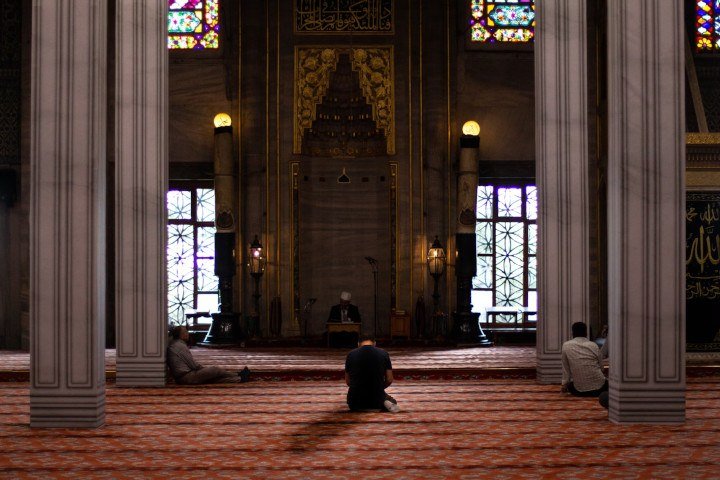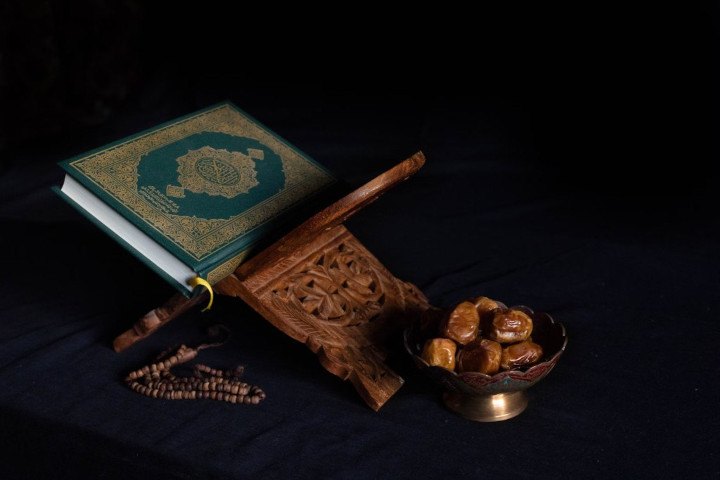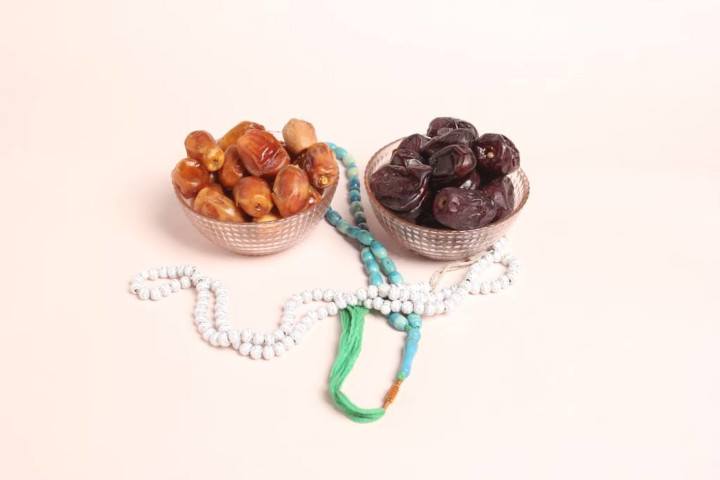Faith, Strength, and Sports: How Islamic Culture Shapes Athletics in the Arab World
Sports in the Arab world are not only an event but also embody devotion, culture, and values. Whether it is the buzzing football stadiums in Riyadh and Cairo or the historic camel racing tracks in the deserts, Islam plays a part in the sporting culture. This can be seen through fasting footballers or the women who have started to rewrite narratives in athletic endeavors. We will discuss how Islamic principles influence sports and exercise in the Arab world.
The Role of Islam in Shaping Sports and Recreation
Within Islam, fitness is an important factor, and Muhammad (PBUH) encouraged swimming, horse riding, and archery. This is why these activities are incorporated into the sports programs of many Islamic countries. For example, the UAE's Sheikh Mohammed bin Rashid Al Maktoum Endurance Cup is a renowned horse racing event, and Saudi Arabia's Camel Racing Federation hosts races that offer millions of dollars in prize money. By the way, watching these races has become easier than ever if you click on تنزيل ميل بيت. After all, with the help of this mobile application, you can not only place bets but also study historical statistics and even watch live broadcasts of some sporting events.
It is also important to note that Arab governments are heavy investors in sports. Saudi Arabia alone spent over $2 billion on the construction of new sports facilities between 2018 and 2023. The number of gyms and fitness centers in the country has tripled in the last decade, showing an increasing focus on wellness. At the same time, brand-name sports like the Saudi Pro League and the Egyptian Premier League continue to grow in popularity, attracting millions of fans from around the world.

How Religious Principles Influence Athletic Ethics
Athletes are fair and disciplined due to the Islamic values instilled in them. Such behaviors can be seen in sports around the Arab world:
- Respect for Opponents: In the Islamic spirit of Adab (good manners), players in Middle Eastern football leagues can be seen accepting one another's respect before and after games.
- Prohibition of Performance-Enhancing Drugs: The UAE’s Anti-Doping Agency has one of Asia's toughest restrictions, banning over 200 substances and conducting random drug tests across professional leagues.
- Commitment to Honesty: Match-fixing is also viewed as a monumental crime, and numerous Islamic nations impose lifetime bans on players deemed corrupt.
- Charitable Giving: In context with Islamic principles of Zakat (charitable giving), many Arab athletes actively support humanitarian causes by donating a fraction of their income. Over $10 million was donated by Arab footballers in 2022.
It is evident that this unswerving ethical foundation ensures the Arab world approaches sports not solely as a competitive endeavor but also as a reflection of a personal and moral pursuit of perfection.
The Growth of Women’s Sports in the Arab World
Women’s sports have seen unprecedented advancements over the past 20 years and have broken a number of barriers. In the GCC countries, female involvement in sports has grown by 300% since 2010 because of the Women’s Football League in Saudi Arabia and the Women’s Basketball Championship in the UAE.
During the Tokyo 2020 Olympics, Arab female athletes etched their names in the history books when they gained prominent recognition, with Hedaya Malak from Egypt and Ruqaya Al Ghasra from Bahrain. Currently, more than 60% of sports scholarships in the UAE and Saudi Arabia are offered to women, which demonstrates the heightened attention being given to women’s sports. There is always a continuous movement toward cultural inclusivity, and the balance between values and sporting ambitions is given meticulous consideration.
Ramadan and Its Impact on Athlete Performance
Ramadan fasting presents a challenge for athletes, yet many remain at the peak of their physical abilities. In the Arab world, about 80% of Muslim footballers continue training during the fasting month as they shift their routines to retain as much energy as possible.
To help fasting athletes, several football leagues in the region reschedule matches to start after Iftar (the evening meal that breaks the fast), giving athletes some respite and the opportunity to fuel up before the exhausting matches. Premier clubs like Al Ahly (Egypt) and Al Hilal (Saudi Arabia) have specialized nutritionists to cater to their players’ needs during the holy month. Regardless of the obstacles, numerous Muslim athletes feel that Ramadan strengthens their mental resolve and deepens the spiritual bond they possess.

Islamic Guidelines on Modesty in Sportswear
Sportswear in the Arab world combines function with religious and cultural considerations. Advances in Islamic sportswear have resulted in internationally acclaimed designs like:
- Hijab-Approved Kits: Muslim sports hijabs were internationally recognized by FIFA in 2014, allowing Muslim women to compete while observing religious practices.
- Full-Coverage Swimwear: These swimsuits allow Muslim women to take part in competitive swimming while maintaining their standards of modesty.
- Loose-Fitting Training Gear: Many Arab athletes prefer to wear light and loose clothing to comply with Islamic teachings about modesty.
- Long-Sleeved Jerseys: These are common in football and athletics and are worn to conform to the Islamic dress code.
It is now evident that leading brands have developed sports apparel designed for female Muslims, which further demonstrates that modesty and high performance can coexist seamlessly.
The Popularity of Football and Traditional Sports
Soccer is the undisputed king of games in the Arab world, where over 85% of sports followers have routinely been watching both local and international leagues. The 2022 FIFA World Cup in Qatar broke viewership records by drawing the eye of over 5 billion people, thereby underscoring the region's love for the game. While camels or falconry, traditional sports, in essence, are very much entrenched as hobbies in the Arab world. The horse races in the Dubai World Cup and the King Abdulaziz Camel Festival, drawing millions of competitors to contest and thousands in sponsorships, are proof that these will always remain.
Halal Nutrition and Fitness in an Islamic Lifestyle
To reach their peak performance, athletes follow a proper diet and nutrition plan and, according to Islam, observe balanced Halal foods. This is how athletes in the Arab region prepare their bodies for success:
| Category | Example Foods | Fitness Benefits |
|---|---|---|
| Proteins | Halal chicken, lamb, fish | Supports muscle recovery |
| Carbohydrates | Dates, quinoa, whole wheat | Provides sustained energy |
| Healthy Fats | Olive oil, nuts, avocado | Boosts endurance |
| Hydration | Zamzam water, herbal drinks | Prevents dehydration |
Most Arab athletes follow Sunnah dietary practices, eating dates and honey, which help them stay energetic while complying with religious dietary customs. Additionally, they focus on unprocessed and natural foods.

The Rise of E-Sports and Digital Entertainment
E-sports is one of the fastest emerging industries in the Middle East, as governments have been spending in excess of $3 billion on gaming infrastructure. Saudi Arabia is the front-runner, hosting tournaments that have prize pools of over $15 million, drawing the attention of international competitors. The Arab gaming audience has already surpassed 40 million players, with a notable shift in focus towards incorporating educational and faith-based components into digital entertainment. E-sports academies in Qatar and the UAE are now training professional gamers, which shows that digital competition is to be taken as seriously as traditional athletics.
Government Policies Supporting Sports Development
Countries in the Arab world acknowledge the importance of sports and are investing billions in infrastructure, training, and hiring global scouts and coaches for events. Saudi Arabia hopes to achieve a 40% increase in sports participation under its Vision 2030 plan, while the UAE has spent over $5 billion on hosting international tournaments.
Doha, Riyadh, and Dubai are now considered international sports centers. They have world-standard stadiums, Olympic sports training centers, and advanced coaching programs available. Such policies have a positive effect not only on homegrown talent but also on bolstering international investment and the region’s global standing in competitive sports.
A Future of Strength, Unity, and Faith
Sports in the Arab world is much more than a game. It is an amalgamation of culture, tradition, and hard work. Fueling the powerful atmosphere of a football stadium, the endurance of a fasting competitor, and the long-standing customs of camel racing exemplify the relationship Muslims have toward sports and physical activities. At all times, this relationship can be observed. Arab investment in sports is on the rise, new records are being set in different sporting disciplines, and with the level of commitment still at its peak, the future of sports in the Arab world is promising.